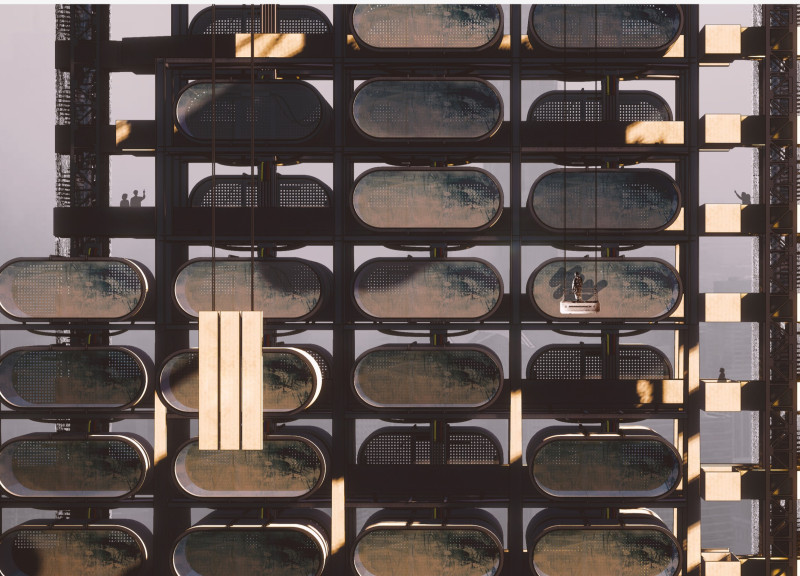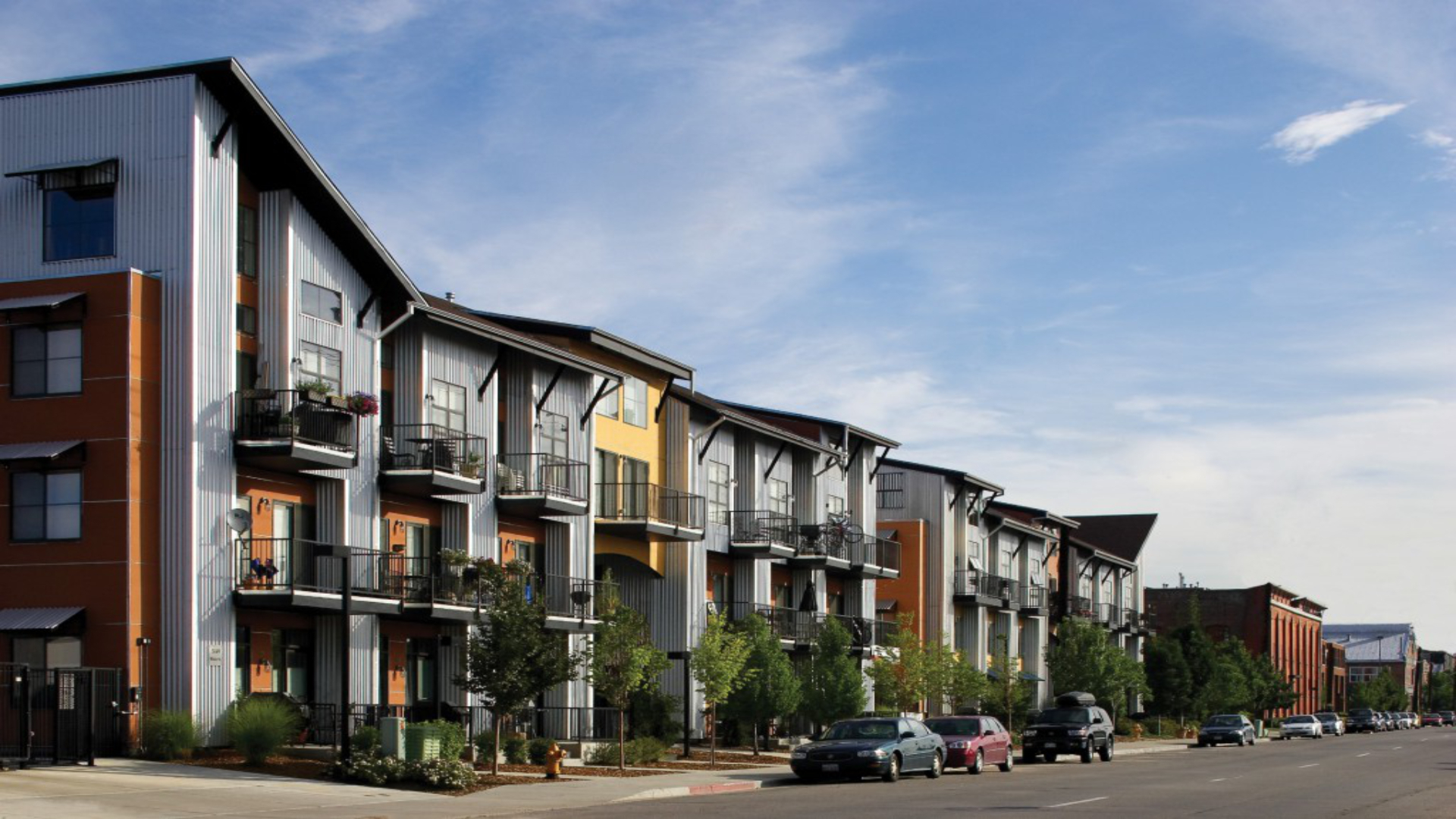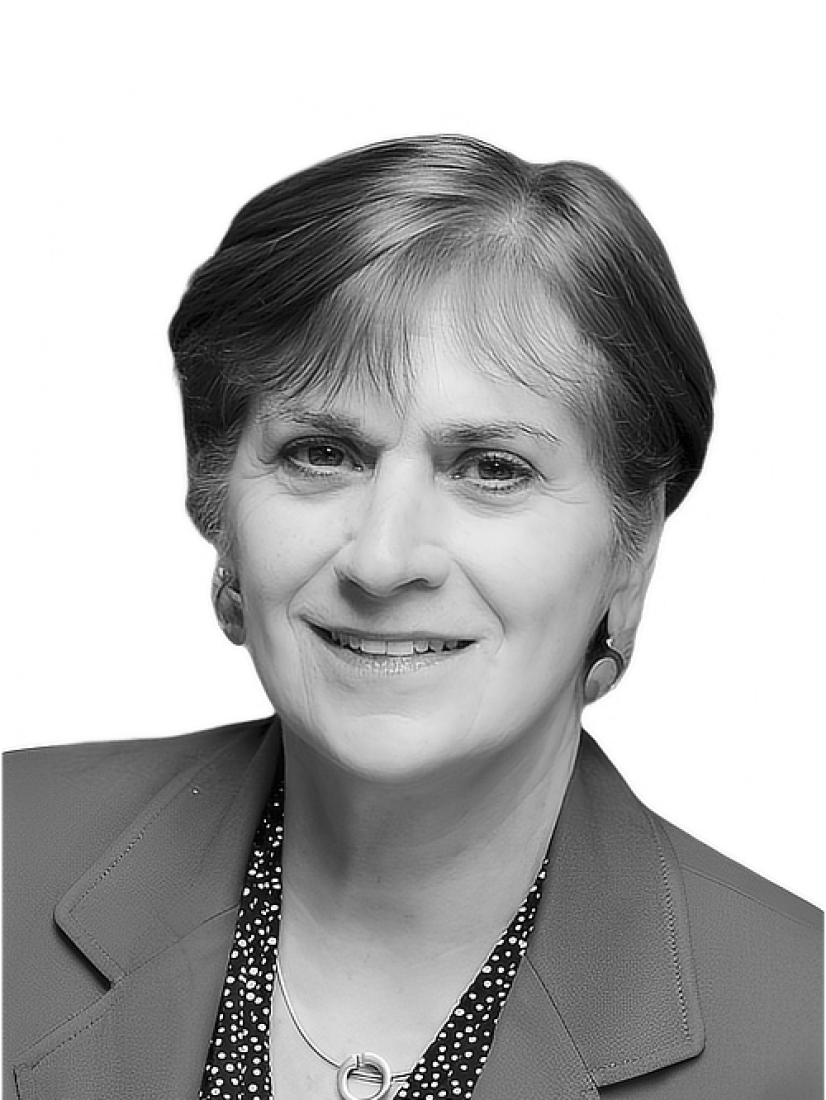5 key facts about this project
The project presents a modular housing system that is based on the principles of Metabolism. It aims to tackle the challenges of urban living by introducing a design that is adaptable to various geographic settings, whether urban, suburban, or rural. The focus lies on creating a sustainable and efficient environment for residents, with configurations that effectively meet diverse housing needs.
Modular Design
The design incorporates an innovative grid structure made up of 8m modules. This modularity allows for flexible arrangements according to site dimensions and density requirements. Each module operates independently, which means they can be replaced or maintained without affecting the overall building. This approach enhances efficiency and provides a potential solution for issues like housing shortages and rising costs.
Cyclical Renewal
A key aspect of the design is the concept of cyclical renewal, inspired by the practice of rebuilding the Ise Shrine every 20 years. This method allows for ongoing updates and repairs, preserving the architectural integrity while accommodating changing community needs. The focus is on replacing smaller components instead of entire systems, which supports a model of growth that resembles natural development.
Efficient Assembly
The project features an interface designed to facilitate quick assembly of the modules. This design reduces on-site construction time and allows for off-site manufacturing of parts, resulting in a more efficient building process. By simplifying the assembly, it lowers both lead times and costs, making the housing solution more accessible.
Customization
Residents are encouraged to personalize their living spaces, choosing from various modular options. This customization fosters a closer connection between the occupants and their homes. It also helps to minimize waste by allowing tailored selections that meet individual needs.
The overall design results in a modular housing solution that emphasizes flexibility and durability, featuring an organized layout that adapts to its surroundings while considering the practical needs of its users.






































